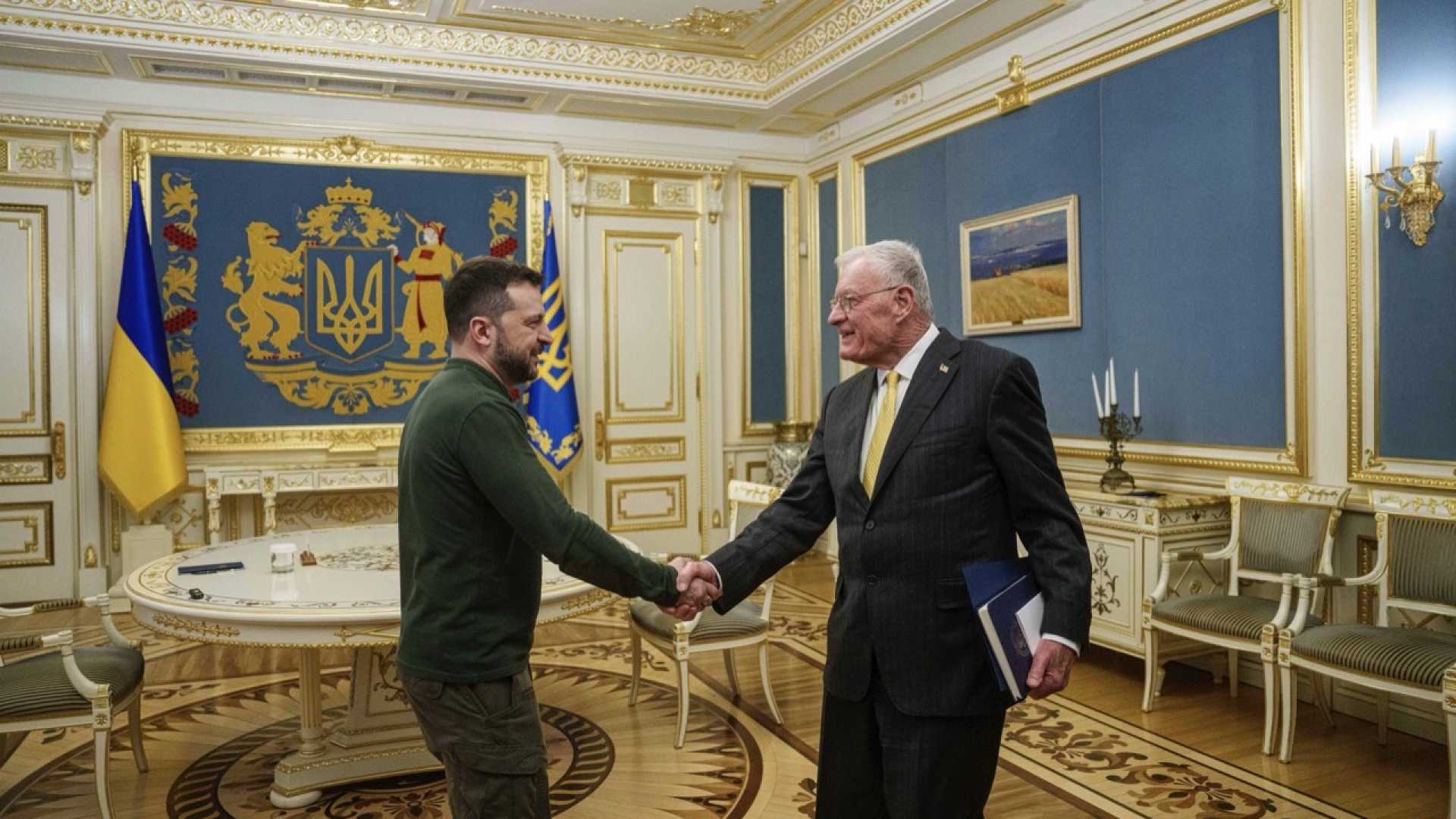Politics
U.S. and Ukraine Edge Closer to Rare Earths Agreement Amid Ongoing Tensions

WASHINGTON (AP) — The White House and Ukrainian officials are reportedly nearing a pivotal agreement that would allow the United States access to Ukraine‘s rare earth elements, strengthening ties amid ongoing conflict with Russia. This progress follows a series of tense exchanges between President Volodymyr Zelenskyy and U.S. officials over the proposed deal’s terms.
U.S. Special Envoy to Ukraine Keith Kellogg met with Zelenskyy in Kyiv over the past week, where discussions reportedly centered on the U.S. gaining a stake in Ukraine’s critical mineral resources in exchange for military support against Russian aggression. The specific terms of the deal are still under negotiation, and it is unclear if any security guarantees for Ukraine would be included.
The impetus for the agreement comes amid heightened criticism from U.S. officials, including President Donald Trump, regarding Zelenskyy’s management of the ongoing war, which has significantly impacted Ukraine’s economy and forced millions to flee. Trump has claimed that the Ukrainians have been wasting American resources, particularly the time of U.S. Treasury Secretary Scott Bessent, who previously visited Ukraine to promote the deal.
During a press conference on February 19, Zelenskyy expressed optimism about the ongoing negotiations. “Today, Ukrainian and U.S. teams are working on a draft agreement between our governments,” he stated. “This agreement can add value to our relations — what matters most is getting the details right to ensure it truly works.” His comments came after his discussions with Kellogg on various economic arrangements including rare earth elements critical for technology production.
Meanwhile, Trump has made conflicting statements regarding the negotiations, at one point referring to Bessent’s trip as a “wasted trip.” His advisors, however, have indicated that they believe a resolution is near. “President Zelenskyy is going to sign that deal,” stated National Security Advisor Mike Waltz at a recent conference.
The importance of access to Ukraine’s rare earth elements cannot be understated. These 17 rare minerals are critical for the production of high-tech devices, electric vehicles, and defense systems. Currently, China holds a dominant position in the global rare earth market, making U.S. access to other sources vital for national security and economic stability.
Ukraine’s mineral wealth has largely gone untapped due to the war and the lack of comprehensive geological data. Analysts note that the country holds significant deposits of lithium and titanium, essential for various industrial applications, yet insufficient modern assessments of these reserves exist. Around 40% of Ukraine’s minerals are inaccessible due to ongoing Russian occupation, complicating potential mining efforts further.
The negotiations have shifted significantly since Zelenskyy initially rejected a more demanding offer of $500 billion in mineral revenues that would have potentially locked future generations of Ukrainians into debt. “I will not sign anything that will be paid off by ten generations of Ukrainians,” he declared in a statement after the proposal was presented.
In a fresh indication of progress, Zelenskyy announced that the U.S. request for the extensive financial compensation had been “taken off the table.” Trump’s administration appears willing to adjust terms to facilitate an agreement.
However, both sides still grapple with substantial hurdles. Any future agreements would require new legislation and further geological surveys to assess the potential viability of mining operations across Ukraine. The ongoing conflict adds significant uncertainty, leaving potential U.S. investors wary of the operational risks associated with a partnership.
The outcome of these negotiations could redefine U.S.-Ukraine relations under Trump’s leadership, moving away from traditional aid methods towards a more transactional approach that emphasizes resource access in exchange for military support. As conflict continues in Ukraine, both leaders face pressure to ensure stability and security for their nations amid shifting geopolitical dynamics.












